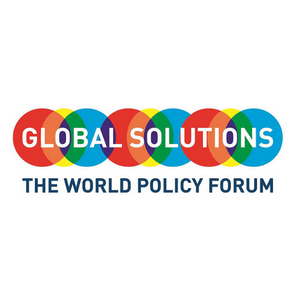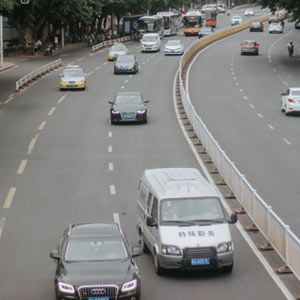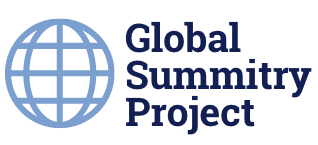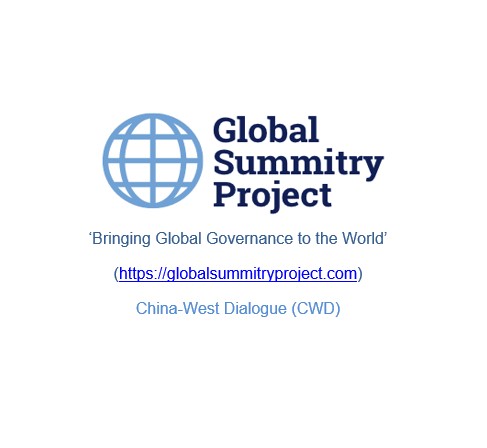CHANGING WORLD DIALOGUE
CHANGING WORLD DIALOGUE
About the Changing World Dialogue (CWD)
The Changing World Dialogue (CWD), originally named China-West Dialogue, was initiated by Lead Co-Chair Colin Bradford, non-resident Senior Fellow, Brookings and Co-Chair Alan Alexandroff, the Director, Global Summitry Project (GSP). The CWD is an inclusive project which draws together thought-leaders from China, Canada, Latin America, Europe, the UK, the US and Asia including Japan, Korea and Indonesia.
The CWD works to define an “alternative framework” for China-West relations at a time when the tense US-China bilateral relationship dominates geopolitics. Currently, the CWD promotes several conversations and research streams. CWD begins, of course, with an examination of the US-China relationship. Thus, CWD continues its in-depth examination of the state of the US-China relationship and whether, and how, to maintain stability and progress in global order relations.
CWD has had a firm commitment to examine the progress of ‘global governance’ policies. Such progress has been significantly hampered by the bilateral tensions of US-China rivalry and more recently the dramatic conflicts in Ukraine in Europe and Gaza in the Middle East. Even as serious strategic competition remains and conflicts continue to destabilize international relations, there are compelling reasons to engage in ‘dialogues’ on addressing transnational global challenges, and continuing communication on promoting international norms and principles.
The major powers, including especially the two leading powers, the United States and China, would benefit from being leading voices affirming their adherence to the principles and purposes enshrined in the United Nations Charter. There is a need to examine the framing and utility of the rules-based order as well as the force and influence of international law. By jointly reiterating their support for the United Nations as an instrument for maintaining peace and security, for restraining the use of force, for insisting on recognition of the sovereignty, territorial integrity, political independence, and supporting equal rights and self-determination for all nations, as specified by the UN Charter, the US and China could define the “high road” in clear terms and help unify the international community, at a moment when wars blatantly violate those agreed principles.
Such a focus on the norms, rules and principles of the global order leads to a continuing appraisal of the roles and impact on the global order of both the Formal and Informal Institutions. A stream of research examines the health and adequacy of the UN and its specialized agencies. Of special concern is the commitment to the Sustainable Development Goals (SDGs). What are the prospects for achieving these global development goals? To what extent might divergent US and Chinese approaches to UN processes impact on the aims and goals for the ‘Summit of the Future’ (SoTF) scheduled for September 2024 where there is much attention being paid to a revitalization of the UN and the UN specialized agencies. There is also a continuing interest in the possibility of reforms for the main economic institutions – the IMF, the World Bank and the WTO.
The CWD, picking up from the Vision20 (V20), currently explores the efforts to advance global governance through the ‘Informals’, especially the G20, but including as well, where appropriate, the G7, the BRICS+, APEC and more. The G20 brings together twenty countries, plus the European Union and now the African Union, which have the ambition and weight to be of consequence in both geopolitical interactions but also in global governance addressing global challenges. The G20 provides a variety of settings and modalities in the week-to-week meetings of various official groups throughout the G20 year. The G20 provides opportunities for these significant countries to use pluralism and professionalism to good effect creating, hopefully, stronger diplomatic networks for advancing global issues.
This targeting of the G20 has led to the development of an additional stream of research on the Middle Powers and Middle Power Diplomacy (MPD). CWD has followed closely the leadership of Middle Power hosting for the G20 starting with Indonesia in 2022, India in 2023 and Brazil in 2024. Following Brazil, the G20 Summit will have South Africa as host of the G20 Summit in 2025. The CWD seeks to model what other initiatives are possible by including a fresh set of “key concepts”, themes and proposals for animating more productive relations and shifting coalitions of consensus of Middle Powers. CWD seeks to uncover, strengthen and upgrade, where possible, reforms to the Informals and the larger global order relations.
The CWD has also encouraged members to research debt management and the growing threat of debt distress for low and middle-income countries. As part of the research effort, CWD principals prepared a debt management proposal for the T20 – T20 Task Force 3, Reforming the International Financial Architecture. As pointed out in the Policy Brief, and after many proposals have been mooted, a global debt governance system is emerging. CWD principals have proposed that the G20 further develop the reformed sovereign debt architecture. They have proposed a new G20 Universal Code of Conduct under the Financial Stability Board (FSB) that would complement the Common Framework (CF), embodying agreements on issues and time frames for negotiating debt treatment deals and promoting sustainable financing.
Finally, in collaboration with Centennial College, CWD has participated in a unique program – Storyworks. This program led by Tim Doyle, the coordinator of journalism programs at Centennial College, recognizes that ‘experience is everything’ and journalism students have joined us at the Global Summitry Project (GSP) since its commencement in 2018. The program provides chosen journalism students with ‘bite-sized’ industry experience. These journalism students have provided media coverage from all the Informals including the G7/T7, G20/T20, BRICS and more generally articles and social media presentations in international relations. These works can be found here at the website at Storyworks.
The CWD’s fundamental goals include helping to reshape the narratives and behaviours of US-China relations as well advancing more generally global governance and stabilizing global order relations. We are looking to identify the means of moving great power relations from friction to function by engaging middle, emerging and major powers in a reframed China-West global order. The aim of the Project is to identify the current and future political dynamics that yield more productive relations in the international system. Dialogue as a means of finding common ground is the fundamental tenet of the CWD.
- Changing World Dialogue Posts
- Archive

Global Solutions World Policy Forum: China-West Dialogue (CWD)
The China-West Dialogue (CWD) was activated in 2020 to pluralize the then toxic bilateral relationship between the United States and China into China-West relations that would include not only Europe but other significant countries from the Global South and elsewhere. Through more than thirty internal off-the-record Zoom sessions over the first three years, which included virtual panels in the Global Solutions Summits, the CWD developed a pluralized dynamic of its own based on the diversity of its participants which now numbers eighty people from more than a dozen countries.

Rebalancing China’s Energy Strategy
The Paulson Institute recently released a paper by Damien Ma entitled “” as the inaugural paper of the Paulson Institute’s Energy and Environment series. Ma provides a strong overview of the current energy situation in China and identifies a link between energy strategy and China’s commitments to climate change. Although his paper highlights key insights regarding Chinese energy strategy, there are a number of important implications these insights hold for Chinese climate change policy that the paper fails to touch upon.

Towards Better Carbon Pricing in China
This year, for the first time in 40 years, the world experienced an arrest in the seemingly exorable growth of CO2 emissions. Annual Chinese emissions also followed this trend, and the reduction in emissions is no doubt partly responsible for the overall bend in the curve on CO2 emissions. In fact, China experienced a 1% reduction in emissions, its first decline since 2001. This is a positive development, reflecting in part China’s major carbon intensity reductions. The effort resulted in a 5% reduction in carbon intensity during just the first half of 2014.



